- Administrator
- Albums and Singles

Collaboration can be a fraught proposition. It relies on an attentiveness between those involved that is receptive, and at times confrontational and directed. When it succeeds, collaborative music making is a profound chemistry, an inexplicable series of eruptive forces that transform singular choices into spirally possibilities. Ogive, bares the marks of these eruptions, albeit expressed through a reductive minimalist electronic sound.
Created by Chris Herbert (UK) and Elías Merino (ES), Ogive is an exploration of intermeshing and contrasting approaches to sound and music. Meeting some years ago, these two artists found a shared interest in their desire to create unfamiliar landscapes of texture and harmony. Encouraging each other to drill ever deeper into the material content of their sound, Folds their debut edition, is driven by a shared aesthetic desire to work beyond the bounds of their individual sonic interests. This project rather focuses on the beauty of imperfections and gestural sound accidents. Amidst clouds of shortwave radio, ghostly voices appear, compressed in dense layers of warped white noise. At other times the work is less haunted, dwelling in spaces of vast open sound fields, in which collections of frequencies gently undulate.
These pieces collected as Folds have slowly crystallised, rooted in methodologies such as generative music, algorithmic processes, and extreme sound synthesis. Ogive's complex sound world synthesizes reduced sound particles, which create complex behaviours, while constructing both active and static microstructures. The results are dense, but minimal; intensive, but with great subtlety. The music is an endlessly shifting correspondence between laminar plateaus and surface details.
More information can be found here.
Read More
- Administrator
- Albums and Singles
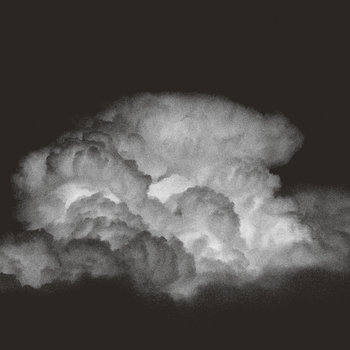
Unearth is the first solo recording from Australia-born, Berlin-based composer and drummer Tony Buck in 15 years.
Many would recognize Buck from his work with the iconic Australia avant trio The Necks. His history as a player however reaches much further than this engagement. Over the past few decades, Tony has cultivated a language that escapes easy categorization.
With Unearth he delivers his most accomplished solo composition. Built across several years, the record is the culmination of his approaches to percussive intensive, pulse and explorations in compositional density. The architecture of this work is framed unsurprisingly around a core of percussion but also draws heavily on Buck’s less known interests in guitar, synthesizer and field recordings. These elements coalesce, haunting one another in an evasive manner that is inexorable, creating a slow moving dialogue of extreme dynamic interchange.
Operating at a pace not dissimilar to what one might expect from a recording by The Necks, Unearth explores a gradual, swelling sound mass, teeming with details, cast across long dynamic arcs. Seeming to move at a pace simultaneously brisk and unhurried, the piece represents an exploration of and meditation on, the duality and paradox of time itself. Moments of fragile and infinitesimal sounds contrast with droning, dense layers; melodic and harmonic elements play out against backgrounds of texture and noise. The pieces elements operate together to render an impressionistic multiverse of worlds, unfolding and wrapping themselves around one another. The work exists as a hierarchical sound mass; a sedimentary layering of intensities , unearthed and unearthly.
More information can be found here.
Read More
- Administrator
- Albums and Singles

We're very excited to reissue Hisato Higuchi's stunning 2003 debut She as an expanded LP/CD on Sept. 22. It features new cover art by Higuchi, two additional songs from the original recording session and remastered audio by Taylor Deupree. This album perfectly captures the 4 a.m. vibe where consciousness, sleep, and dreams slip into each other. To celebrate the reissue, here's a new video for "Girl Sister" that captures those states.
Hisato Higuchi was born in Nagoya, Japan and now lives in Tokyo. A guitarist and vocalist, Hisato first embarked on his artistic travels as a puppeteer for a theater company. In 1990 he started creating music in his home studio and eventually released his debut CD EP She in 2003. Higuchi's spectral tone and haunting sing-style has best been described by Volcanic Tongue's David Keenan as "beautiful melodic/melancholic space-blues that touch on poles as precious as Mazzacane, Keiji Haino and Patty Waters."
More information can be found here.
Read More
- Creaig Dunton
- Sound Bytes
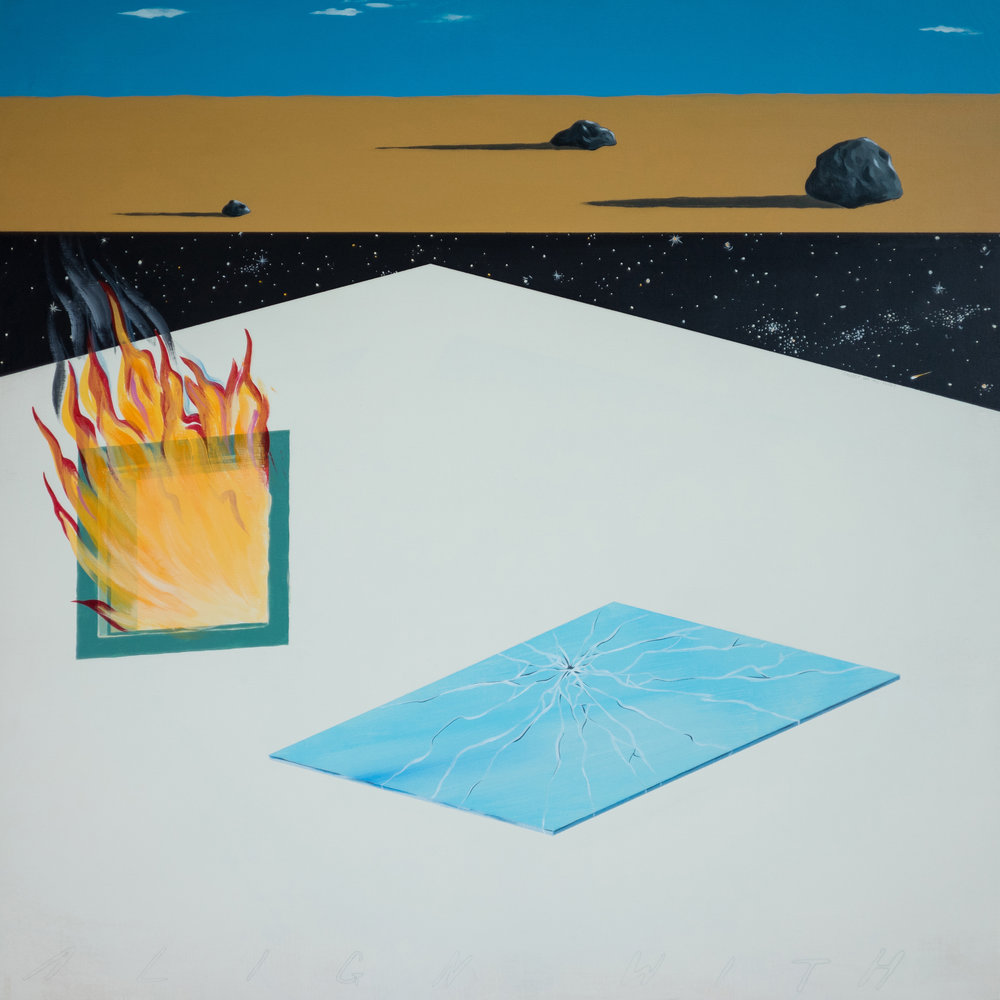
Brainwashed and Holodeck are proud to premiere "Never Enough Time" by Sungod member and Austin resident Michael C. Sharp here, as well as on the latest Brainwashed podcast episode. The song appears on the upcoming limited edition cassette, also titled Never Enough Time, and is one of five beautiful tracks of lush synthesizer expanse and heavily processed guitar work. Sharp may be a percussionist, but his work here is centered on tone and mood, rather than beats. "Never Enough Time" begins from shimmering layers and loops, which he then merges with dream-like synth patterns and delicate effects. Indicative of the album as a whole, it is an entrancing, engaging blending of melody, loops, and experimentation that is as complex as it is gorgeous.
Pre-order Never Enough Time (HD041) by Michael C. Sharp
Never Enough Time will be released on October 20, 2017 as a cassette on the Holodeck label and is limited to 200 copies.
- Administrator
- Albums and Singles
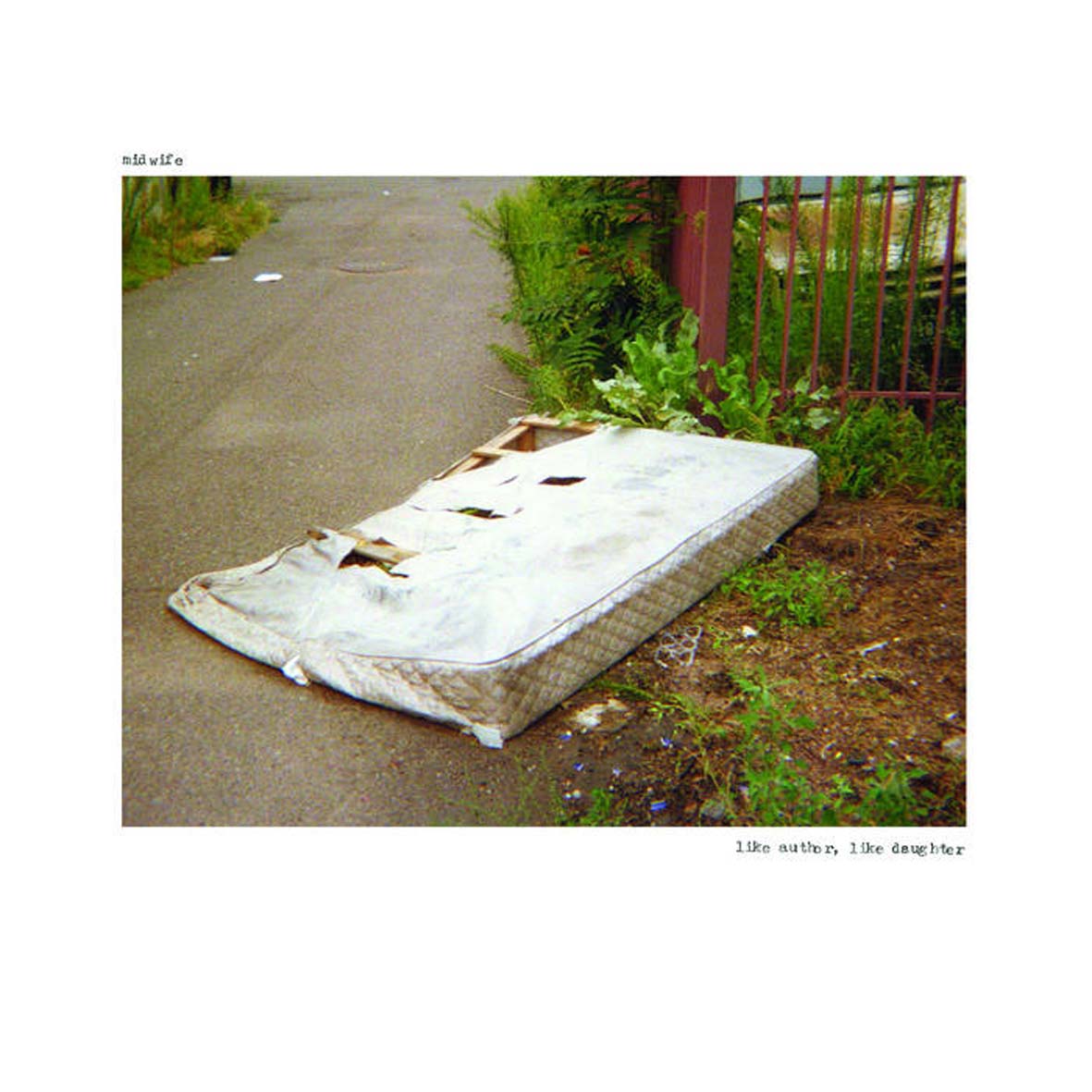 I have to admit that I was legitimately blindsided by this latest project from Sister Grotto's Madeline Johnston, but I would have been eagerly anticipating it if I had been at all aware of her previous work, as last year's You Don't Have To Be A House To Be Haunted is similarly quietly stunning.  The key difference with Midwife is simply that Johnston (with the aid of co-producer Tucker Theodore) has now distilled her languorous and hazy dreampop vision into something a bit tighter, hookier, and more sharp-edged.  Obviously, any female solo artist making artfully blurred, melancholy, and reverb-swathed music is doomed to be deluged with Grouper comparisons (favorable, in this case), yet Johnston's aesthetic is quite a bit more muscular and direct, albeit slowed to a somnambulant Codeine-esque crawl.  While those are certainly great reference points to have, the real magic of Like Author, Like Daughter largely lies in the songcraft and execution, as this is simply a batch of strong, memorable songs presented beautifully.
I have to admit that I was legitimately blindsided by this latest project from Sister Grotto's Madeline Johnston, but I would have been eagerly anticipating it if I had been at all aware of her previous work, as last year's You Don't Have To Be A House To Be Haunted is similarly quietly stunning.  The key difference with Midwife is simply that Johnston (with the aid of co-producer Tucker Theodore) has now distilled her languorous and hazy dreampop vision into something a bit tighter, hookier, and more sharp-edged.  Obviously, any female solo artist making artfully blurred, melancholy, and reverb-swathed music is doomed to be deluged with Grouper comparisons (favorable, in this case), yet Johnston's aesthetic is quite a bit more muscular and direct, albeit slowed to a somnambulant Codeine-esque crawl.  While those are certainly great reference points to have, the real magic of Like Author, Like Daughter largely lies in the songcraft and execution, as this is simply a batch of strong, memorable songs presented beautifully.
The opening "Song for an Unborn Sun" is prime Midwife, capturing Johnston at the absolute peak of her powers and laying down a solid template for everything that follows.  The core of the song is quite simple, as the piece is built upon a simple, bittersweet, and lightly distorted chord progression slowly strummed over a glacially slow and hyper-minimal drum beat.  Naturally, there is a lovely vocal melody as well, so all the pieces are in place for a fine song, yet Johnston merely uses that as a departure point and deftly enhances it with a host of sublime details and intuitive great decisions.  For example, she casually drops a subtle guitar hook that would have made Lindsey Buckingham or The Byrds proud, then doubles down to include a second and similarly understated synth hook that appealingly bloops beneath the sheen of tape hiss.  Also, I was quite struck Johnston’s decision to highlight certain lines of the song with a cathartic chorus of layered vocals, which gives the song enough bite to fleetingly tear through its otherwise dreamlike spell.  Equally crucial is what Midwife does not do, such as lapse in navel-gazing or mopery, which are easily the greatest pitfalls inherent in music of this type.  Instead, Johnston delicately maintains a more ambiguous, almost autumnal mood and does so with an appealing degree of unpredictability and quiet heaviness.  As if that was not enough, "Sun" ends in under four minutes, making it a damn near perfect song that does not waste any time or linger around to overstay its welcome.
Old habits die hard though, so Like Author rarely manages to attain that level of chiseled concision again, even though Johnston otherwise sticks quite closely to the same plan....for the most part.  The next few songs suppress Midwife’s more "pop" instincts for a turn into more bleak territory, though "Reason" somewhat compensates for the decreased energy level with a wonderfully woozy haze of feedback.  The lengthy instrumental "RTD, Part 1," however, slows everything to a crawl of ringing, minor key arpeggios, albeit one nicely embellished by nimbly executed counter-melodies that dance between the languorous cascades of notes.  It admittedly feels like a bit of a indulgent lull at times, yet it unexpectedly segues into another gorgeous bit of bleary, soft-focus pop genius with "RTD, Part 2," which beautifully embellishes a single obsessively repeated lyric with tender vocal harmonies and swirls of buried guitar noise.  The more delicate and understated "Name" is yet another heavenly stand-out, maintaining a quietly smoldering intensity of lazily intertwining arpeggios and lovely tape hiss-ravaged vocals that fitfully erupt into unexpectedly visceral pseudo-choruses.  Elsewhere, "Liar" is yet another gem, as Johnston's vocals unfold vaporously over a groove that feels simultaneously propulsive and like it is slowly straining through a pool of molasses.  It is quite an impressive balance of textures and dynamics all around, managing to blur together force, simmering intensity, restraint, and blearily dreamlike vocals into a perfect cocktail of precarious co-existence.
My sole critique of Like Author is merely that Midwife has a clear formula and a limited palette (hazy vocals, a drum machine, and a very consistent guitar tone), which makes its nine songs feel like a series of variations on a single theme with somewhat diminishing returns as I get deeper and deeper into the album (even though the second half features many of the best songs).  The same could be said for plenty of artists that I enjoy though, as there are lots of talented people who do one thing brilliantly and can fruitfully explore a single constrained niche for album after album.  Johnston definitely falls into that category, which is just fine by me, as she is a fresh and distinctive voice and a stellar songwriter.  It just means that I am more likely to play individual songs to death rather than return again and again for album-sized doses.  It is also worth noting that we are in the midst of a phase in the nostalgia cycle in which plenty of hip young bands are eagerly embracing classic shoegaze and dreampop albums as their influences and that Midwife is undeniably one of them.  At its peak, however, Like Author, Like Daughter is one of the few albums in that milieu that transcends its context, feeling like an legitimate unearthed gem from the 4AD/Creation/Kranky glory days rather than just another skilled pastiche from another current artist who loves those albums as much as I do–Johnston captures the essence every bit as much as she captures the style.  That said, Like Author still falls a bit shy of being an instant classic for me, but I sincerely doubt I will hear many songs better than "Song For An Unborn Sun" or "RTD, Pt. 2" this year.
 
Read More
- Creaig Dunton
- Albums and Singles

Brainwashed and Holodeck are proud to premiere "Never Enough Time" by Sungod member and Austin resident Michael C. Sharp here, as well as on the latest Brainwashed podcast episode. The song appears on the upcoming limited edition cassette, also titled Never Enough Time, and is one of five beautiful tracks of lush synthesizer expanse and heavily processed guitar work. Sharp may be a percussionist, but his work here is centered on tone and mood, rather than beats. "Never Enough Time" begins from shimmering layers and loops, which he then merges with dream-like synth patterns and delicate effects. Indicative of the album as a whole, it is an entrancing, engaging blending of melody, loops, and experimentation that is as complex as it is gorgeous.
Pre-order Never Enough Time (HD041) by Michael C. Sharp
Never Enough Time will be released on October 20, 2017 as a cassette on the Holodeck label and is limited to 200 copies.
Read More
- Administrator
- Albums and Singles
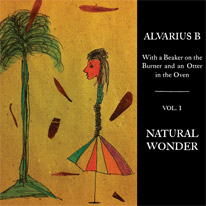
Volume One of three new LPs I am releasing simultaneously called Natural Wonder, this is the more melodic, savvy one and you might like it. Maybe I'm lying and it's the innocent, straight record so maybe you should get Vol 3 (ABDT 059C-LP) instead if you're in a darker mood. But that's not really true either. Or maybe it's one of those records that grows on you the more you continue playing it... like a cancer.
The musicians who played on all three albums don't deserve to be involved in these kamikaze promotional descriptions so don't blame them for any of this. They played so well on these records, in fact they play much better than you do, and their performances deserve a 'Whammy,' which is the awards show where I'm in charge and the winners get to shoot members of the music industry academy dead in their seats. That's where it's all headed you know. . . . The modern world of record making has become so fucking dull and obedient that someone has to ram a poison dagger up your asses and since you're all under hypnosis, I promise you won't feel a thing. I could pay Dougie Jones to write this piece to match your intellect or hire a publicity company to promote it but who really gives a fuck? I'm still making records for myself and the rest of humanity doesn't speak my language anyway. By deciding to write my own album promos, I can perform some market research.
For example, this album description text will undoubtedly be copy/pasted by most online retailers onto their respective sites because they don't write their own new album reviews or get too excited about music, they simply want to create the illusion that they're in business to sell records. So I could put something like: Fuck all website retailers that copy/paste this description onto their site because they are too fucking cheap, lazy or chicken shit to have an opinion to write individual album reviews -- and they probably wouldn't even notice while doing it.
Anyway, back to my new album. These songs are pretty good, most likely way better than your songs, and I don't even have time to be a real songwriter, so what does that say about you? It says that you suck. And most of you do. But you should buy my new three album set because it's probably as good or better than any other LPs that will be released this year. But if you aren't ready to go all-in with confidence, then forget it. I don't want any mudskipper sub-species of the crayfish to buy my records. There are always a few speculators who'll pick up the extra copies you won't buy anyway. - Alvarius B (August 2017)
More information can be found here.
Read More
- Administrator
- Albums and Singles

Amir Abbey follows up Secret Pyramid's last album, Movements of Night, with Two Shadows Collide, an ever deeper exploration of the sounds between consciousness and transcendence. Carefully built and fluidly performed, the record deepens Abbey's relationship with modern composition and abstract songcraft. Songs have an exploratory immensity fueled by cosmic awe, basking in a dreamlike presence. Abbey's works move slow, building substantive monolithic odes of awe which shift and morph into fully fleshed paeans of possibility.
"Possession" yields inspiration from Ligeti's string works combined with field recordings, while the Badalamenti-esque "In Wind" provides a cinematic aural homage to the Pacific Northwest. You can hear the singular Ondes Martenot float and glide through several tracks, including the hazy and beautiful title track. Each song's main inspiration comes from the notion behind the album title, the intersection and attraction of forces and worlds, clashing of sounds, and the dualities within our lives. That such a meditative release is built upon conflict is ironic, but therein lies the perfect way to listen.
More information can be found here.
Read More
- Administrator
- Albums and Singles

Written and produced by Kieran Hebden
Created on a laptop computer using Ableton Live software to control and mix VST plugins as well as manipulations of audio recordings. Plugins used for sound generation include Omnisphere, Kontakt, Dexed and Arturia V Collection.
Additional synthesiser programming on "LA Trance" by Kaitlyn Aurelia Smith.
"Hang on Lush" performed by Tom Baker.
Out September 29, 2017 on Text.
Read More
- Administrator
- Albums and Singles
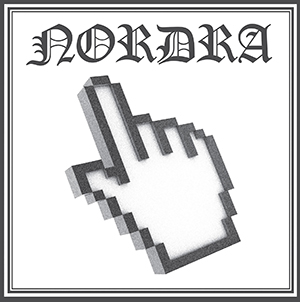 The debut release from Monika Khot (also a member of Zen Mother) as Nordra is one of those sort of records that just gleefully trounces unnecessarily invented borders between genres without a single care or consideration for what an album should sound like. Khot rarely settles into a single style or even structure for these four songs, but there is method to the madness. A full gamut of alternative pop, techno, and drone metal show up, sometimes within the span of a single song.
The debut release from Monika Khot (also a member of Zen Mother) as Nordra is one of those sort of records that just gleefully trounces unnecessarily invented borders between genres without a single care or consideration for what an album should sound like. Khot rarely settles into a single style or even structure for these four songs, but there is method to the madness. A full gamut of alternative pop, techno, and drone metal show up, sometimes within the span of a single song.
The opening moments of "Apologize to Me, Humanity" are at first a bit confounding:a big synthetic 4/4 kick drum beat and rhythmic synth blips are not just conventional, but also something I would have never expected coming from Aaron Turner’s SIGE label.Things soon started making more sense, as the aforementioned elements were mangled and processed into some perversion of conventional electronic music, rife of change and variation that is usually unheard of.At about the halfway point, the song shifts into full on drone metal territory, and by the end even a bit of pleasant singer-songwriter vocals and guitar.Besides the darkness, the sheer sense of experimentation makes sense for the label.
The sound (and intentionally erratic song construction) continues into "Regret 1," where Khot keeps the big beats, but opts for more sweeping, nearly symphonic electronics and synthesizers.Less aggressive and more moody, she creates an excellent dramatic feel via the complex layers of instrumentation.Eventually this gives way to a jerky transition between the synth and beat heavy passages with some more harsh-tinged noisier bits, resulting in a sound that is mesmerizing and never at all predictable.
"New Cycles," on the other hand, comes across more as a deconstruction of industrial rock to its barest essentials.Sputtering noises compliment a stiff sounding drum machine that casts out some rudimentary rock rhythms.Eventually the beat is reduced to just cymbals before guitar and more electronics come in with an oppressive, doom-laden sensibility to them. By the end, Khot leaves behind some of the most pleasant, light guitar moments on the entire record.With shifting, dynamic distortion added to the beats and dark, electronic spaces, it is reminiscent of those early radical dub reworks Godflesh would do but taken to even further, more experimental lengths.
For the concluding "This is Dissent," she keeps the piece in more overtly electronic realms.At first a depressive mass of electronic clicks and beats, the mood is bleak, but there is a lighter melodic undercurrent that is undeniable.Eventually the piece transitions to a more upbeat, less bleak sound, but still idiosyncratic and bizarre, before coming to an abrupt end via cheap beats and varying tempos.While there may not be any jarring shifts in instrumentation, that transition from dour to uptempo keeps it fresh throughout.
Nordra's debut is extremely bizarre and unpredictable in its sound, but never does it come across as sloppy or uneven.Juxtaposing dance music, doom metal, and noise (among a multitude of other styles) could easily end up a messy, unabashed attempt at sounding weird or strange, but the cohesion here is undeniable.For all its oddness, this record just works, sounding like nothing else and not at all attempting to.After writing about (and listening to) unconventional music for so long, I sometimes worry that I have heard it all, so I am always happy to hear something like this that defies any and all expectations I may have had before even giving it a listen.It may be confounding at times, but it is an unquestionably brilliant record through and through.
samples:
 
Read More
- Administrator
- Albums and Singles
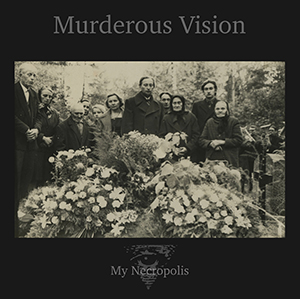 The latest release from Stephen Petrus's long running dark electronic/death industrial project may not deviate far out of the comfort zone of its discography, but that is really a moot point. Instead, it works as the culmination of styles he has dabbled in, but with the self-assured sheen of an experienced artist. I will admit it personally hits some specific nostalgia buttons for me as well, but even objectively it is an excellent piece of malicious, sinister electronics.
The latest release from Stephen Petrus's long running dark electronic/death industrial project may not deviate far out of the comfort zone of its discography, but that is really a moot point. Instead, it works as the culmination of styles he has dabbled in, but with the self-assured sheen of an experienced artist. I will admit it personally hits some specific nostalgia buttons for me as well, but even objectively it is an excellent piece of malicious, sinister electronics.
As the Murderous Vision project enters its 20th year, I could not help but be reminded of the scene from which it came, which was a recurring theme throughout much of My Necropolis.The late 1990s were a fertile period for the harsh electronic scene in the US, when many artists such as Petrus began to expand upon the death industrial aesthetic associated with the Cold Meat Industries label and the harsher power electronics of the Tesco crew.It was a time in which these artists were not imitating those who had came before, but truly creating something simultaneous inspired and original.I remember many a late night (on dial-up internet) cruising through various message boards, mp3.com, LiveJournal, and the old alt.noise Usenet group when artists such as Murderous Vision, Death Squad, XTerminal, and Quell were establishing themselves and their art before social media existed as we know it today.
Opener "The Wilted" drives this home:a pastiche of subterranean synth rumble and hints of neoclassical flourish creep along, minimal yet menacing in its sound.The lengthy follow-up "A Leg Broken at the Edge of the Sea" in turn shows the development and evolution of Petrus's approach through the years.It may begin from a similar foundation of pulsating dungeon synth, but it soon becomes much more complex and rich.The use of open spaces, subtle creakiness, and far off hints of rhythm expand upon the originally primitive foundation, giving much more depth than the basic synth patches and cheap digital effects that the genre was built on back in the day.
"Without Presence" (featuring Matthew Hunzeker and Steve Lull) is a thick and heavy mix, but not overly hostile or noisy.The addition of processed spoken word vocals and live drumming (or at least a very realistic approximation thereof) channel some of the earliest industrial vibes, without at all sounding dated or like a simple imitation.Ritualistic percussion also abounds on "Immolation/Separation", within a framework of simmering power electronics noise and complex, dissonant passages.The inclusion of both sweeping synth strings and harsher vocals on the latter half also keep it engaging.
For a style not usually known for conventionality, both "Fire Rabbit" (with Amanda Howland on vocals and additional electronics from Wyatt Howland) and "My Necropolis" have an almost song-like structure to them as far as development is concerned.The former has a funereal, tone-heavy sound to it, propelled by far off militaristic drumming and Howland’s spoken narrative.On the other hand, "My Necropolis" is a mass of pummeling, aggressive drums, chanted voices and murky electronics, coming together in a grandiose, yet uncomfortable bit of sinister music that oozes with malevolent ambience.
Having been familiar with Stephen Petrus's work since nearly the project's inception, Murderous Vision has come a long way with My Necropolis.Excellent production and attention to sonic detail are unquestionable, but also the self-assuredness that comes from being active for so long shines through on this album.There is mostly just doom and gloom throughout this record (I would expect nothing less based upon the title), but that is exactly the intent, and it is done so exceptionally well, and with enough understated diversity, that I was engaged beginning to end.
samples:
 
Read More